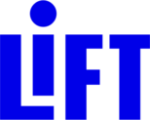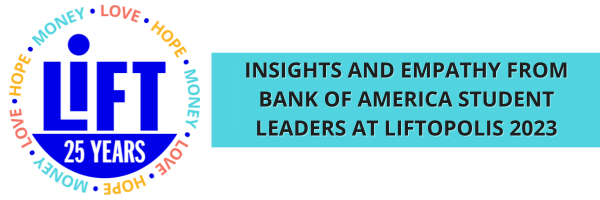
This past July, over 300 Bank of America Student Leaders participated in a one-of a kind simulation called LIFTopolis, where students stepped into the shoes of the hardworking parents and caregivers that LIFT partners with across the country every day.
This was the tenth time LIFT led the Student Leaders through the simulation, an intentionally frustrating experience where students are given minimal instructions and an objective to fulfill the essential needs of their character.
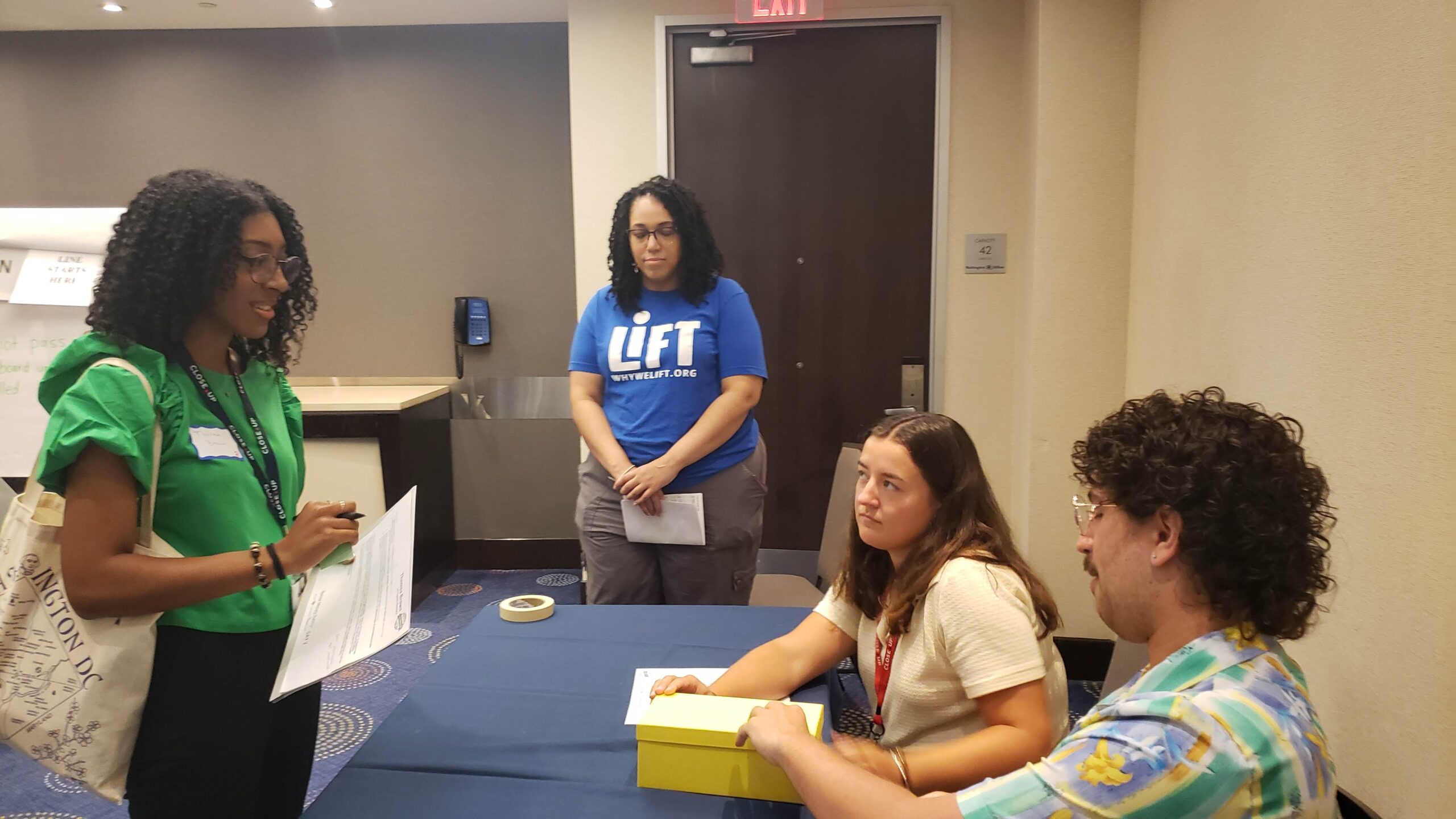
This was the tenth time LIFT led the Student Leaders through the simulation, an intentionally frustrating experience where students are given minimal instructions and an objective to fulfill the essential needs of their character. The ‘actors’ staffing the social services providers were asked to take on the real-life persona of someone who works at social service offices, such as the DMV (Department of Motor Vehicles) in order to capture the frustrating reality of navigating the system. This year, Aderinsola and Kelyn, two Student Leaders, shared firsthand accounts of their LIFTopolis experiences, offering insights into the simulation’s challenges and their broader solutions for combating poverty.
Growing up as a first-generation Nigerian American, I’m not new to struggle. From hearing the first-hand accounts of my parents’ struggles when immigrating to America, to even witnessing it when my mother decided to get her master’s degree, financial and emotional struggles were not new to me. So, when the creators and representatives of LIFTopolis came to the 2023 Bank of America Student Leaders D.C. summit to talk to us about their one-of-a-kind simulation that allowed students to step into the shoes of the hardworking parents and caregivers, I wasn’t fazed. That was until the simulation started and I was put into the shoes of a real LIFTopolis mother struggling. By the end of the simulation, I was expected to have found childcare for her kids, find a stable job, get approved for government assistance, as well as get a license, all while being a felon, and finally remember to pick up the kids by the end of each day to avoid losing my spot at daycare. I thought I knew struggle until I personally had to experience it. Although it was a simulation it felt real, I was stressed about rent, finding a job, and much more. LIFTopolis opened my eyes to the millions of Americans who must do this all day every day because life isn’t a simulation, it’s real. I am so grateful I got to experience the LIFTopolis simulation because as a Student Leader, I should not be new to the struggles and hardships people in my community and around the world face.
– Aderinsola Odusanwo is 16-year-old Senior at Uncommon Preparatory Charter Highschool in Brooklyn New York.
When I came into the convention center for the LIFTopolis simulation I thought to myself, “Kelyn, girl, you got this! You are gonna get your girl Carol out of poverty and into an apartment.” Would you be surprised if I told you I failed to help Carol? Probably not, but the real question is why? During the first ‘day’ of the simulation, I developed anger. Did people really waste days in lines? For me, being in line for more than five minutes is torture, so I decided to venture to other stations. Once I pushed through the crowd of protesting and confused teenagers and got to a new station, the service providers needed something I didn’t have, identification. For most, this is an easy task, they can go home and grab their passport or ID. What if you do not have a home or a social security card? Carol didn’t have either, and I had an epiphany: Carol and I are screwed. I sat in lines for days, never getting anything I needed. As time went on, I developed a bad case of hopelessness. I was never going to get anything I needed. I was never going to get an ID or a job. I was never going to get out of poverty.
At the end of the simulation during the debrief, I sat at my table and recalled my boss saying, “When you are in poverty, you cannot help but feel hopeless- like the world is just happening to you.” Thanks to LIFTopolis, I caught a glimpse of hopelessness for myself. While society is not consciously being built to instill hopelessness in low-income people, it does just that. When you are in line for days, constantly being told no, and having to recount your trauma to strangers day after day, you can’t help but lose hope. How can you feel like you have autonomy in your life when you cannot control anything that is happening to you?
I failed to help Carol because the simulated experience made me want to give up. People living below and at the poverty line have learned hopelessness, but their life is not a simulation. When we address the issue of poverty, we need to take into account the trauma and hopelessness that results from it. Being aware of the long-term effects of poverty will help us create better housing, opportunities, and legislation for those in need. Having trauma-informed care in institutions that serve people in poverty will make sure those like Carol have a shot at success.
-Kelyn Bayne is a senior at Mauldin High School in South Carolina and holds leadership positions for religious and political organizations.
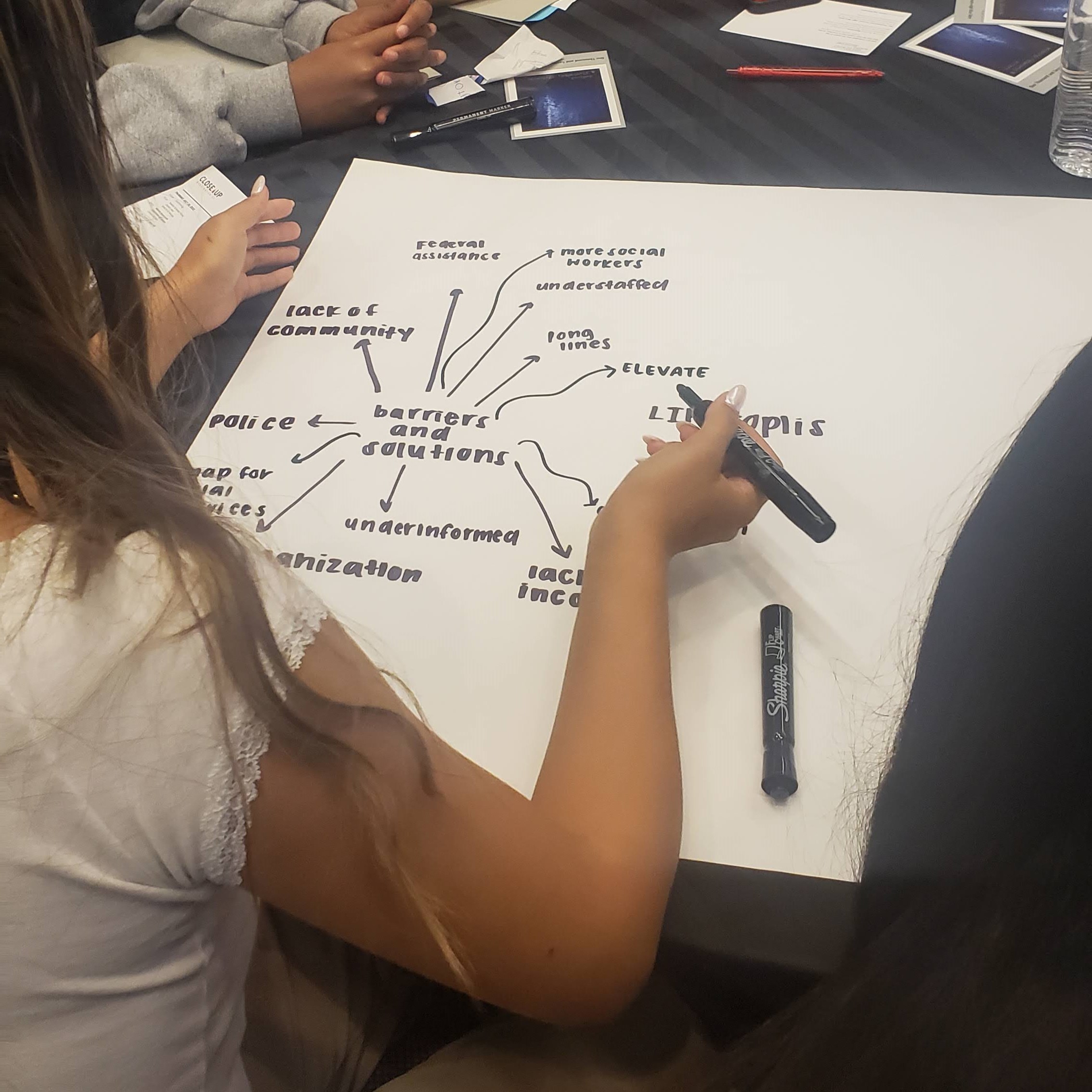
These accounts exemplify LIFTopolis’ mission, which is bigger than inducing frustration and guilt. The simulation’s purpose is to provide an opportunity to build empathy and understanding that leads the students to create change. After the simulation ends, students meet in groups to debrief their experiences, using the opportunity to think big about what can be done differently to help families navigate these systems. Ideas such as technology advancements to streamline services, more training for providers, and human-centric coaching models to help those navigating social services.
Proximity is the cornerstone of change.” Said Stephanie Lomibao, Philanthropy Program Executive for the Bank of America Charitable Foundation, and board member for LIFT. “At Bank of America we are committed to advancing economic opportunity and we know that to affect change we need to ensure we have voice of the community. By delivering the LIFTopolis simulation to our Student Leaders, these future changemakers are able to better understand the challenges that many families face and brainstorm ideas to solve for a brighter future. Our partnership with LIFT is a direct reflection of our commitment to create sustainable change in the communities we serve – and it will take Hope, Money, and Love.
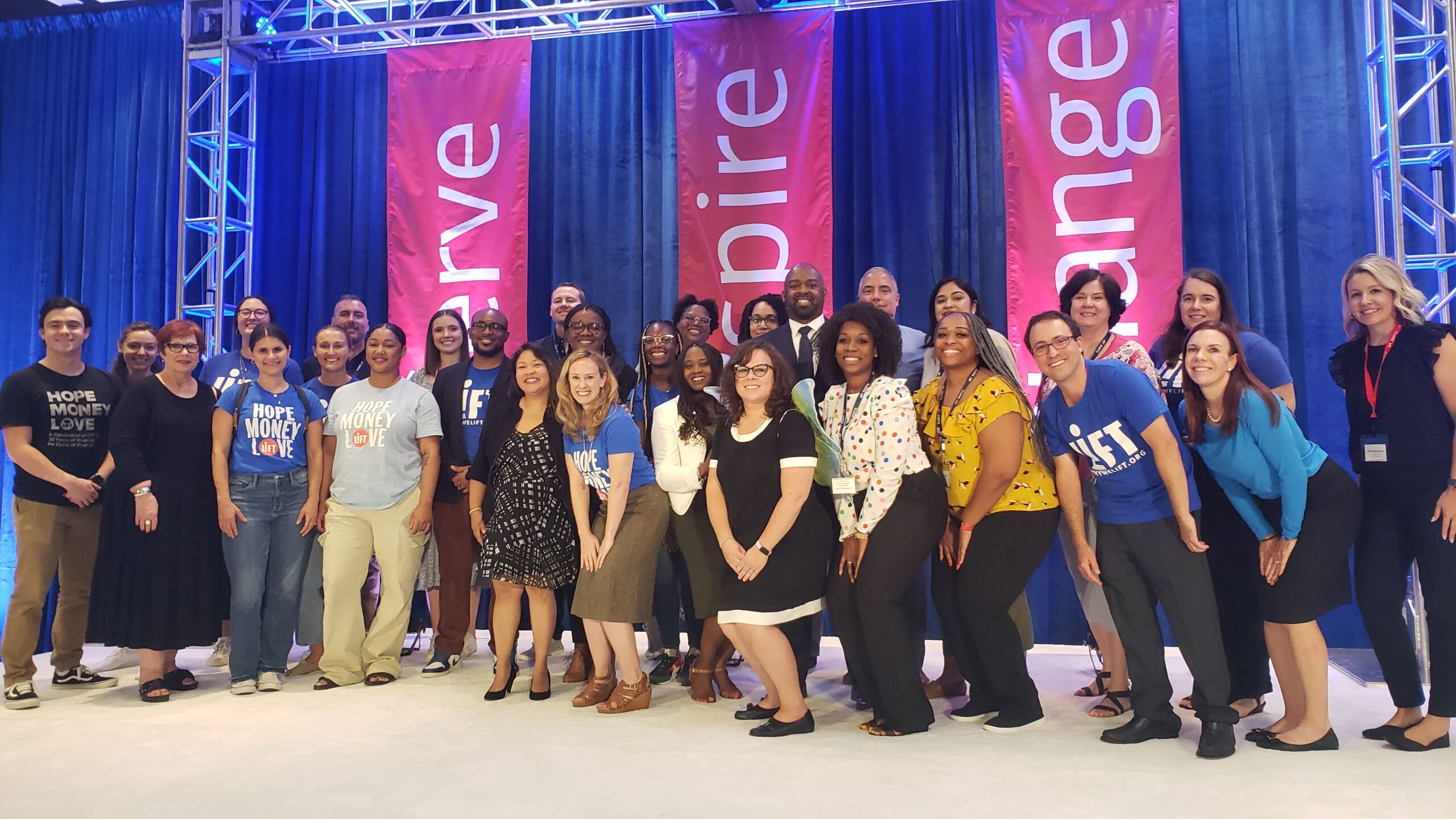
Since 2007, Bank of America has proudly supported our mission to provide underserved families individuals access to financial education and wealth-building tools to break the cycle of poverty. LIFT is thankful to Bank of America for providing us with the opportunity to engage and learn with their Student Leaders.
